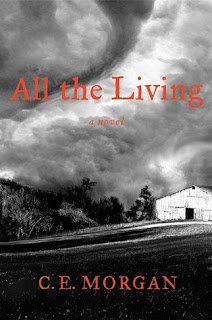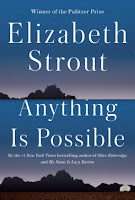I received this book for free from Netgalley. That did not influence this review.
If you’re looking for a beautifully written, richly detailed (detailed about things I’m not overly interested in–tide pool biology, cricket...yet strangely compelling nonetheless) historical novel that will gently tug at your heartstrings, The Woodcock by Richard Smyth is a must read.
The pace is gentle and it took awhile to immerse myself in the slow rhythm of the story, but the tension built continuously and I had a hard time putting the book down. It can be funny at times, yet has a menace to it like a horror story. I knew it would end badly, but I didn’t know how it would end, and I needed to know.
The story is told in the first person by two of the main characters, alternating POVs. The first is Jon Lowell, a naturalist who makes his living writing articles for journals (and one book!) about the creatures inhabiting the seashore, the tide pools, of the tiny north England village Gravely. He’s a handsome young man, in his early twenties, though he seems older at first. He lives quietly. He wants to live quietly, absorbed in his odd work, work that is engrossing to him but bizarre or amusing to the other residents of the town.
The second narrator is Harriet Lowell, Jon’s wife. She’s introduced to us that way, as if her role in life is simply that. She’s a native of Gravely, a small town girl. She is surprisingly, and very noticeably, beautiful. (Jon takes some pride in that.) She does love her husband. But she also has a rich inner life that Jon knows nothing about. He’s never bothered to ask. She spends a lot of time with the town preacher, Reverend Aldridge, which annoys Jon only because he doesn’t like the man and is not, himself, religious. Mostly, he doesn’t care what she does with her time so long as she doesn’t inflict the preacher on him. Whether Jon’s absent-ness bothers Harriet or serves her purpose isn’t made clear. Harriet is an insular character, reflective, intelligent, and wounded.
The book opens with outsiders coming to town.
One is Jon’s longtime friend, David McAllister, a successful novelist, lady’s man, handsome, beefy, and brave. Although polar opposites, the two are best friends, soul mates. They make each other laugh. (Their banter is hilarious.) But David is also an alcoholic and a bit of a lost cause.
More momentous is the arrival of the Americans, Maurice Shakes and his two beautiful daughters, Cordelia and Eleanor. Shakes is a man with a dream: he wants to build a tourist attraction to outdo Coney Island, a large pier and amusement park with all the amenities early twentieth century technology can provide, on the shore of backwater Gravely. A beguiling salesman, he cons the people of the town into accepting his vision, all except Reverend Aldridge, who sees it as evil, Harriet, who sees it as dangerous, and Jon, who isn’t against the idea so much as he is mistrustful of change. It seems unlikely the tourist attraction would be good for the local wildlife.
Shakes is a whirlwind and development moves quickly. But more disruptive for our protagonists are the two daughters. Cordelia ensnares David–or maybe doesn’t. And Jon finds himself drawn to Eleanor. It’s painful to read Jon’s self-absorbed pursuit of a woman he barely knows while he justifies his neglect of his wife.
Although the plot is fairly straightforward, there are many swirling undercurrents. They offer a variety of possibilities for resolution – none of them good – so that the story is satisfyingly complex.








































